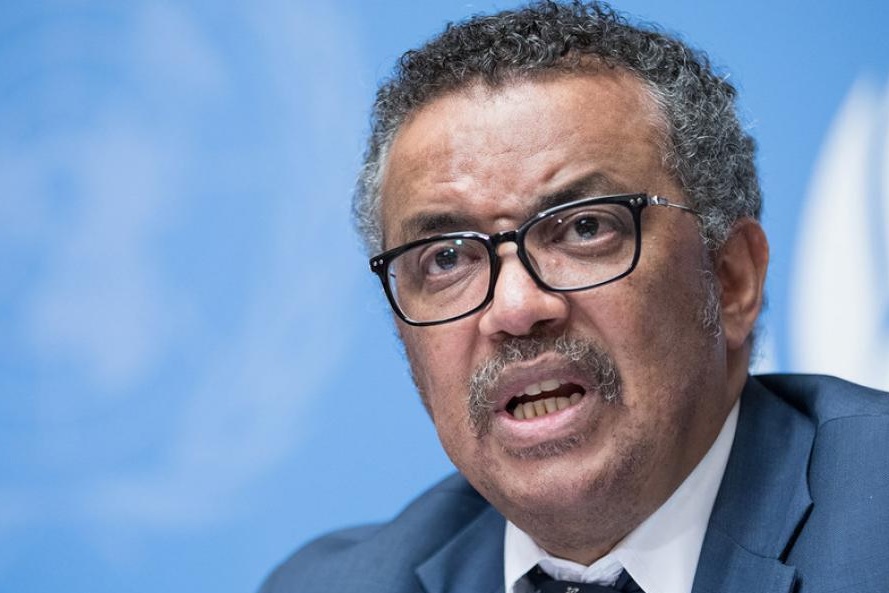
The World Health Organization’s (WHO) director-general Tuesday issued another warning against “vaccine nationalism,” — countries putting their own interests ahead of others in trying to secure supplies of a possible vaccine.
At the agency’s regular briefing in Geneva, WHO Director-General Tedros Adhanom Ghebreyesus said, “Nationalism exacerbated the pandemic and contributed to the total failure of the global supply chain,” noting shortages of protective gear when the pandemic first hit caused by some nations hoarding resources.
The WHO chief said that countries needed to work together to “prevent vaccine nationalism,” so in the event a vaccine or vaccines are developed, those at the highest risk will have equal access.
WHO Director-General Tedros Adhanom Ghebreyesus attends a session of the WHO Executive Board held virtually by video-conference, amid the COVID-19 pandemic, May 22, 2020, in this image provided by the World Health Organization in Geneva.
Tedros said the world is so interconnected we will need each other more than ever once a vaccine or vaccines are approved for use. As an example, he said “a vaccine developed in one country may need to be filled in vials with stoppers that are produced in another, using materials for the high-grade glass that is only available from yet another country.”
Meanwhile, WHO officials warned the world’s young people they are not immune to COVID-19 and their behavior is putting everyone else at risk.
Officials in countries from Asia to Europe over the past month have noted “hotspots” in their nations where COVID-19 cases were surging were in night clubs or other areas where young people like to congregate.
Kerkhove said that people should not be blamed for wanting to live normal lives but people, especially the young, are not invincible amid the coronavirus pandemic. She urged everyone to consider the risks and the consequences of their actions.
More than 21.9 million people have been reported to be infected by the novel coronavirus globally and 772,647 have died, according to a Reuters tally.
According to the WHO, the governments of Austria, Belgium, Canada, France, Germany, Italy, Mexico, Morocco, New Zealand, Norway, Saudi Arabia, South Africa, Spain, and the United Kingdom, and the European Commission have so far committed to the ACT-Accelerator.
China, Russia, and the US have not been named part of it.